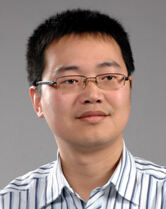
Bio:
Yanmin Zhu is a professor in the Department of Computer Science and Engineering at Shanghai Jiao Tong University since 2009. Prior to joining Shanghai Jiao Tong University, he was a Research Associate with the Department of Computing at the Imperial College London. He received his PhD from the Department of Computer Science and Engineering at the Hong Kong University of Science and Technology (HKUST) in July 2007; and his bachelor from Xi'an Jiao Tong University (XJTU) in July 2002. His research interests include wireless sensor networks, vehicular ad hoc networks, Internet of things (IoT), crowd sensing and smartphone sensing. He severed TPC Co-Chairs of a few international conference, including IEEE ICPADS 2014, COLLABORATECOM 2015, etc.
Title:
Crowdsensing for smart cities: challenges and opportunities
Abstract:
With the rapid development of smart mobile devices and mobile Internet, crowd sensing has become increasingly popular in recent years as a new paradigm for gathering various sensing data from people’s surroundings. The main advantages of crowd sensing, in contrast to traditional sensor networks, include lower deployment and maintenance cost, wider geographical coverage, richer sensing data, etc. Crowd sensing is particularly instrumental to various applications of smart cities. This talk first introduces the basics of crowd sensing, highlighting the main components of a crowd sensing system and the typical process of employing crowd sensing for building an application of smart cities. Then, the talk discusses the key challenges facing crowd sensing, e.g., strategic behaviors of data contributors, and sparseness of sensing data. Finally, the talk will present some of our recent research projects of crowd sensing, including incentive mechanisms, state estimate with sparse data, and map updating with GPS trajectories. |
